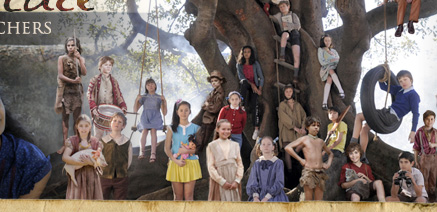The 2010s was a decade characterised by both hope and despair. Beset by intense debate over what has been called the climate culture wars, the national parliament reflected the division within the wider community. Prime ministers were toppled by their own parties seeing five prime ministers in 10 years.
The climate culture wars initially focused on the question about whether climate change existed, and then on who should make the sacrifices to reduce carbon emissions. Australia relied heavily on exports of coal, gas, iron ore and other minerals to countries like China, Japan and India, earning significant income for the nation. Yet as years of drought and unprecedented hot temperatures continued resulting in the devastating Black Summer fires of 2019 - 2020, the mood for change shifted. By the end of the decade, many people - from farmers to firefighters, energy companies to school children - acknowledged the need to transition the economy away from fossil fuels. School children led large nationwide protests, Strike4Climate, in 2018 and 2019.
In 2017 following a growing community campaign, the Marriage Law postal survey asked voters if they were for or against the law being changed to allow same sex couples to marry. It was voluntary for eligible Australians to respond to the postal survey with 79.5% choosing to participate in the survey. Legislation then passed the national parliament stating that the right to marry was no longer determined by sex or gender.
First Nations people continued to seek recognition of land rights and sovereignty. From 2015 to 2017 a Referendum Council appointed by the then Prime Minister and Opposition Leader travelled the country to meet with 1,200 First Nations peoples. Then a Constitutional Convention was held in Uluru, with delegates drafting the Uluru Statement from the Heart. It was an invitation to walk on a journey of healing, calling for a First Nations voice to parliament on policy which impacts Indigenous people, and a Makarrata Commission to supervise a process of agreement-making between governments and First Nations people, and truth-telling about the past. As the decade closed, plans were as yet unrealised to take a proposal for recognition in the constitution to referendum.





